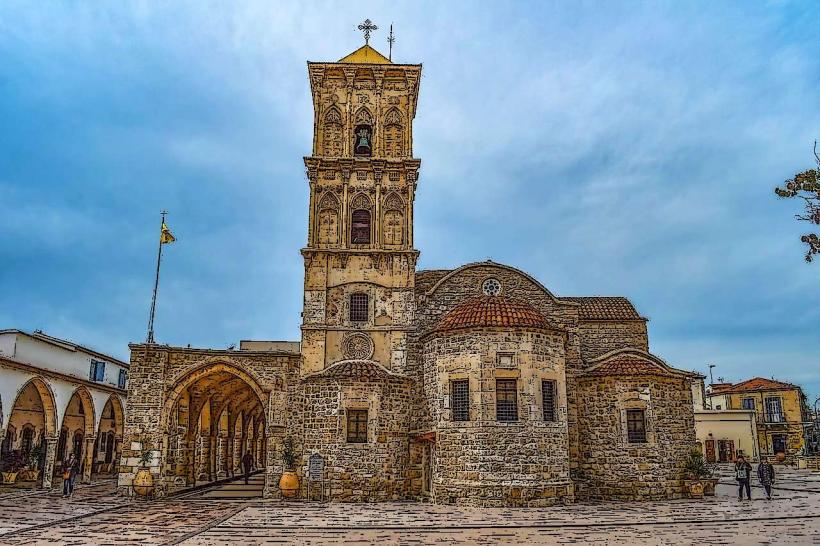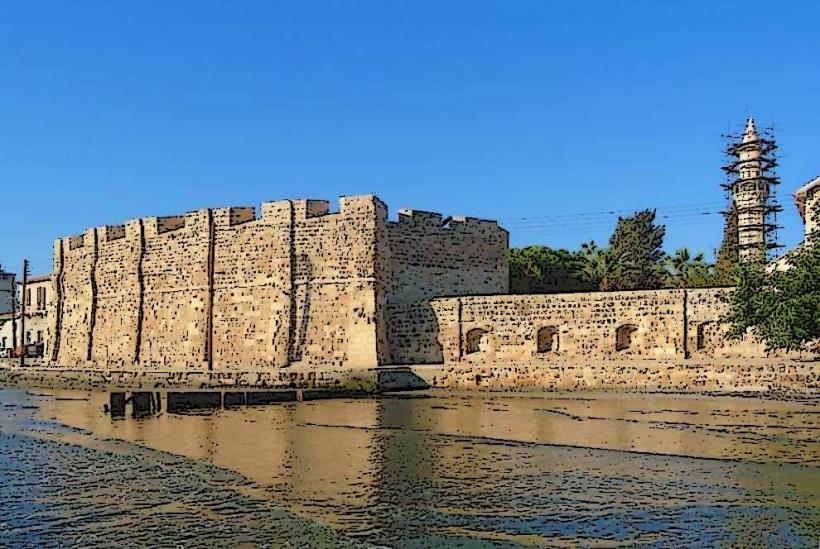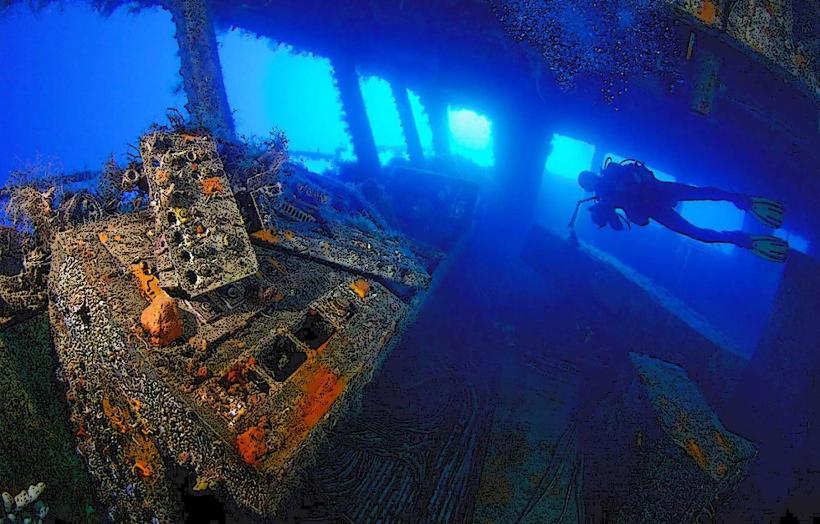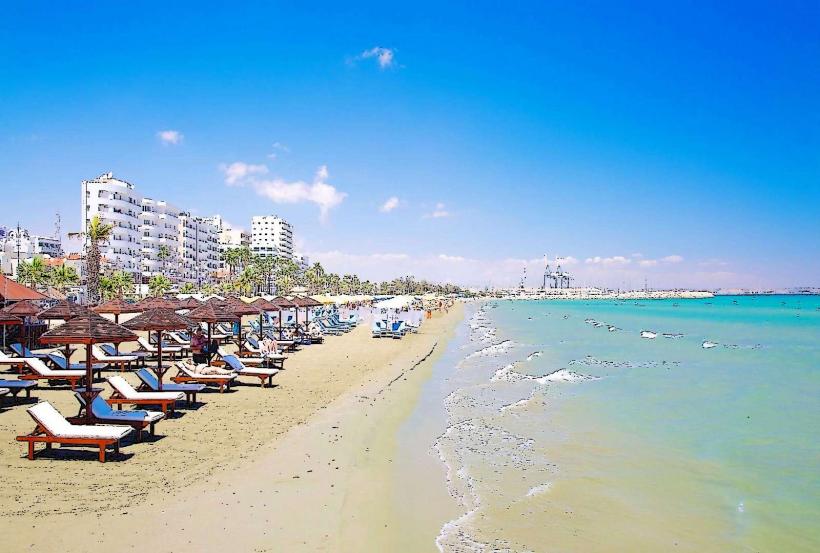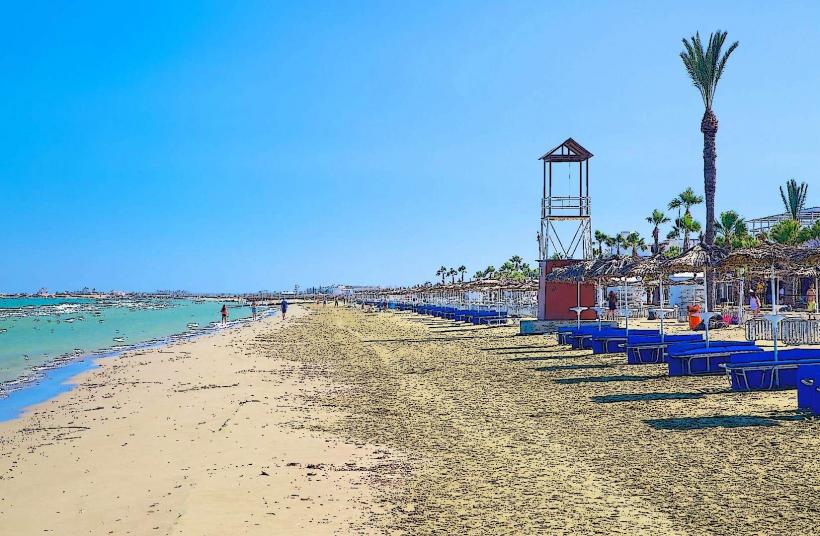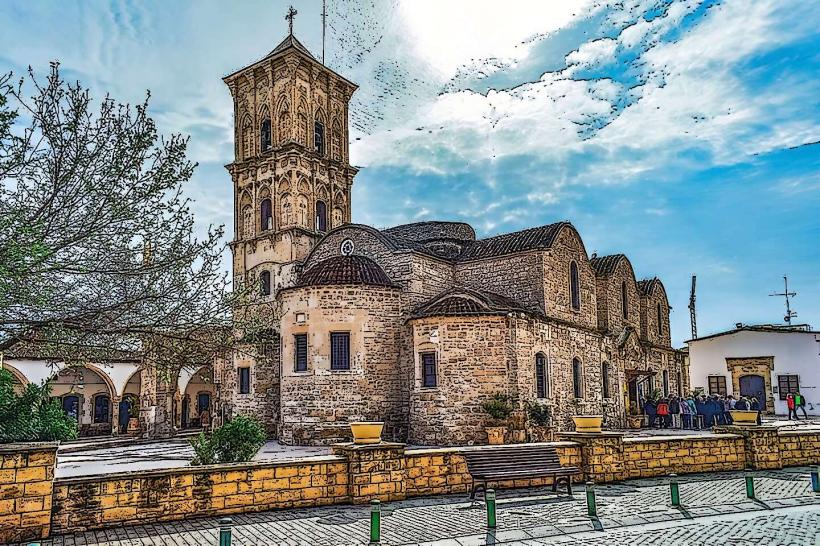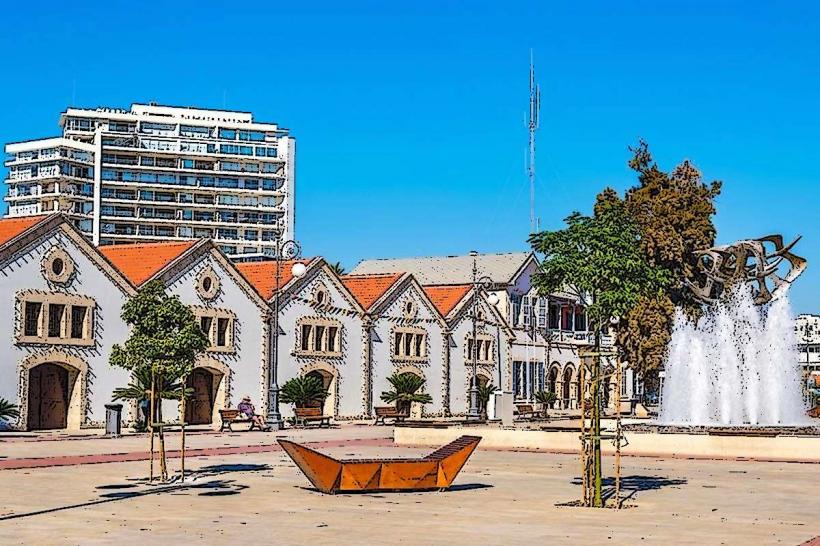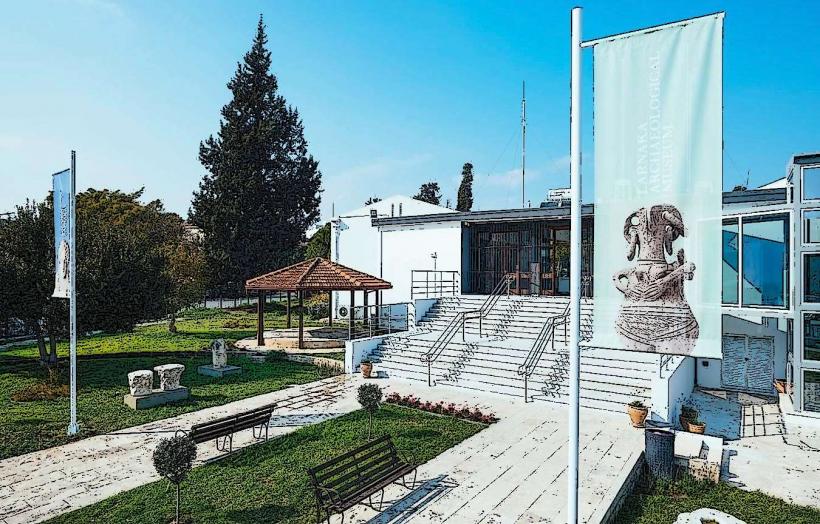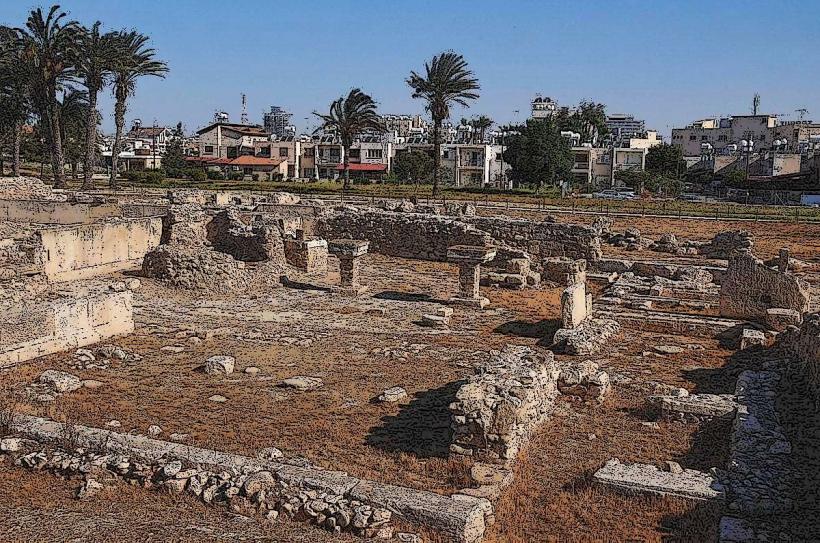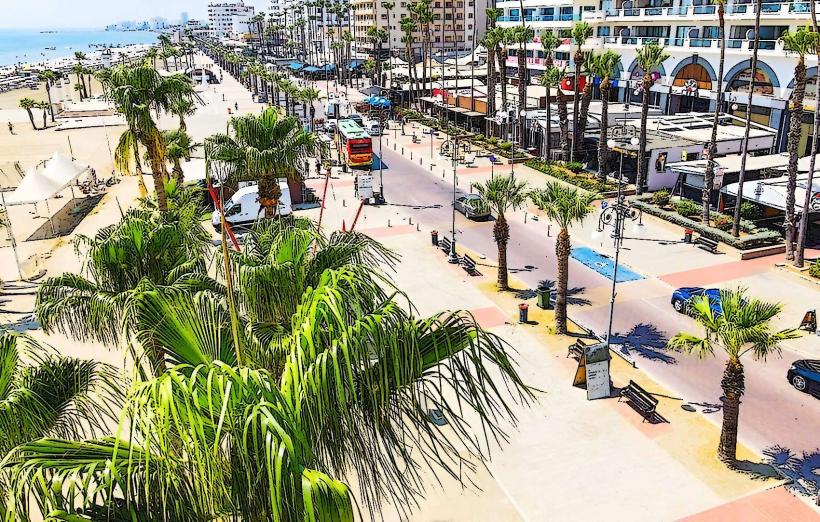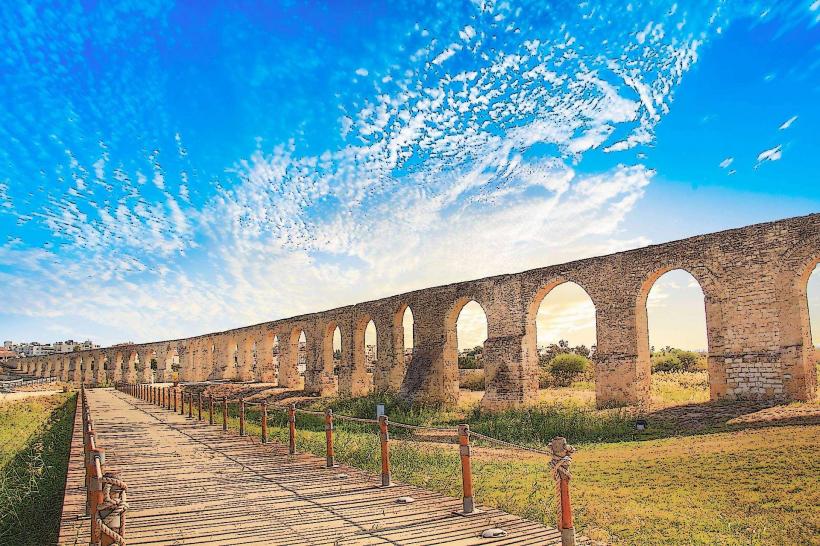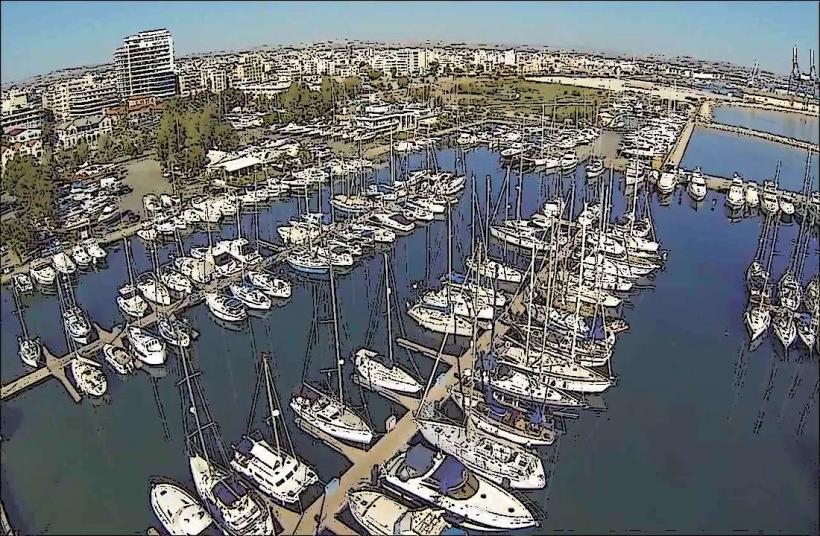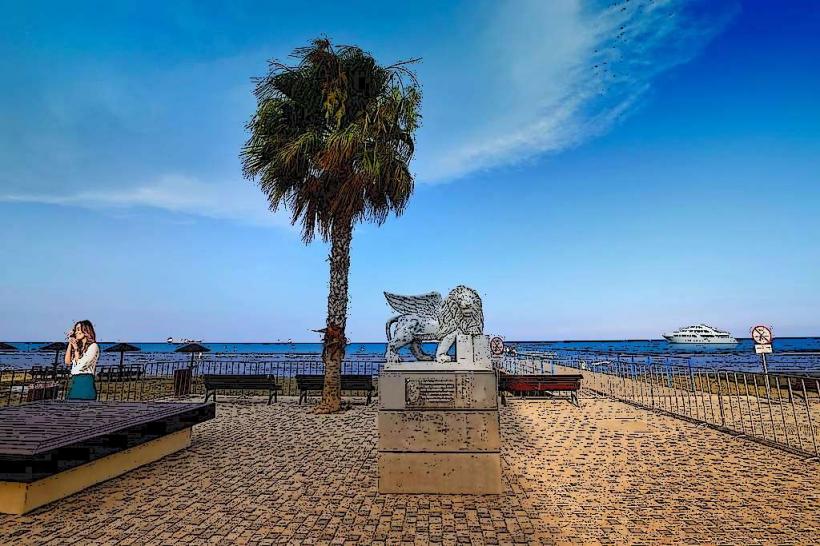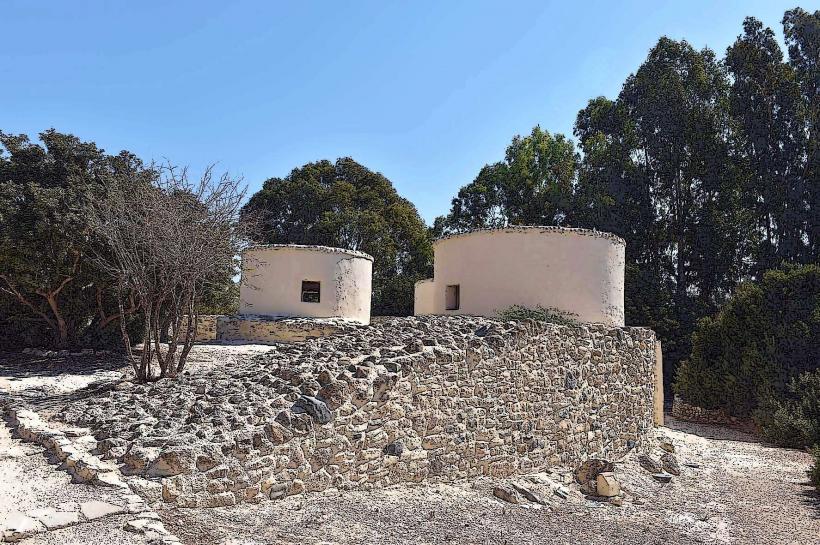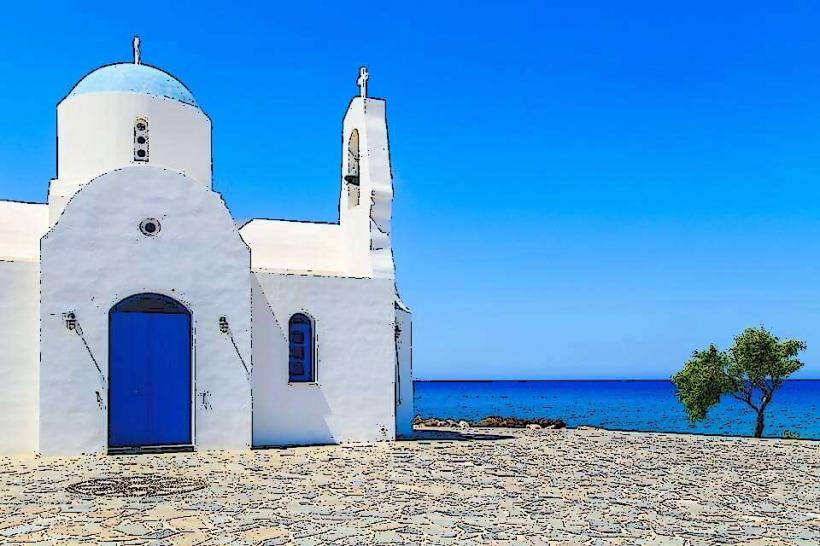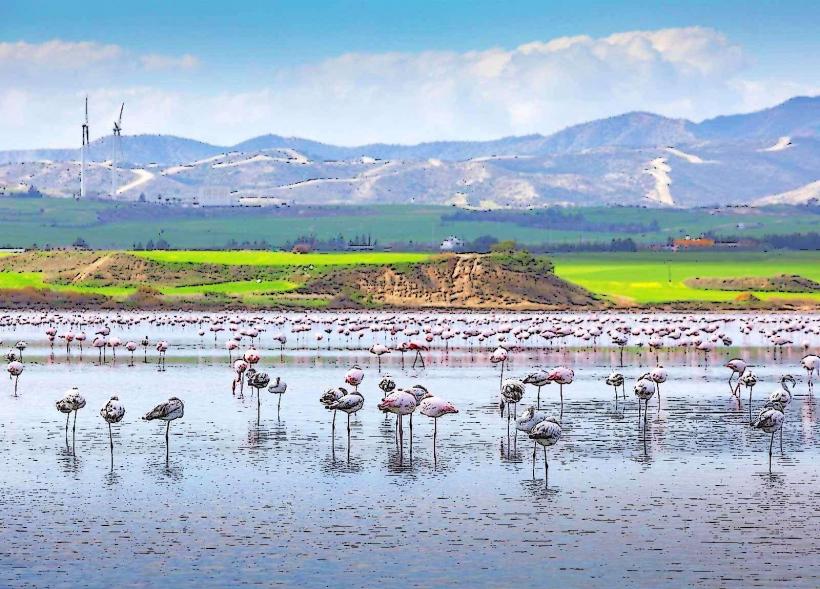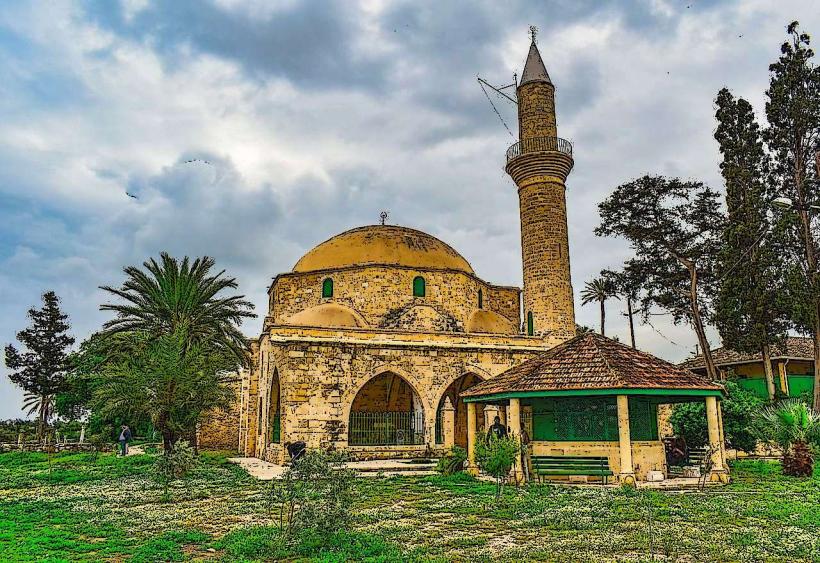Information
Landmark: St. Thekla ChurchCity: Larnaca
Country: Cyprus
Continent: Europe
St. Thekla Church, Larnaca, Cyprus, Europe
St. Thekla Church is an Orthodox church complex located in the village of Mosfiloti, approximately 20 kilometers west of Larnaca, Cyprus. It comprises a modern church building and an ancient cave chapel with an associated holy spring.
Visual Characteristics
The church complex features a modern main church constructed from light-colored stone, characterized by a single dome and a prominent bell tower. The older cave chapel is carved directly into natural rock, presenting a simple, unadorned entrance that contrasts with the newer structure.
Location & Access Logistics
St. Thekla Church is situated in Mosfiloti village. Access from Larnaca is primarily via the B1 highway, followed by local roads leading into Mosfiloti. The site is approximately 20 km west of Larnaca city center. Limited free parking is available directly adjacent to the church grounds. Public transport options are infrequent; a private vehicle is recommended for direct access, as local bus routes to Mosfiloti are not regular.
Historical & Ecological Origin
The original cave chapel dates to the 4th century AD, founded by Saint Thekla. Its initial purpose was a place of worship and healing. The modern church building was constructed in the 20th century to accommodate a larger congregation and provide additional facilities.
Key Highlights & Activities
Visitors can enter the cave chapel to observe the ancient rock-cut altar and the holy spring. Lighting candles is permitted within the chapel. The main church is open for prayer and viewing of its iconography.
Infrastructure & Amenities
Basic restroom facilities are available on the church grounds. Limited natural shade is provided by trees surrounding the complex. Cell phone signal (4G/5G) is generally available. There are no dedicated food vendors directly at the church; the nearest options are located within Mosfiloti village.
Best Time to Visit
The church is accessible year-round. Morning hours typically offer softer light for exterior photography. The cooler months from October to April are preferable for comfortable exploration, avoiding the intense summer heat. No specific tide requirements apply to this inland site.
Facts & Legends
A local legend asserts that the holy spring within the cave chapel possesses healing properties, particularly beneficial for eye ailments. Visitors frequently collect water from this spring.
Nearby Landmarks
- Mosfiloti Village Center: 0.5km East
- Panagia tou Kampou Church: 2km North
- Kato Drys Village: 4km West
- Vavla Village: 3.5km South-West

